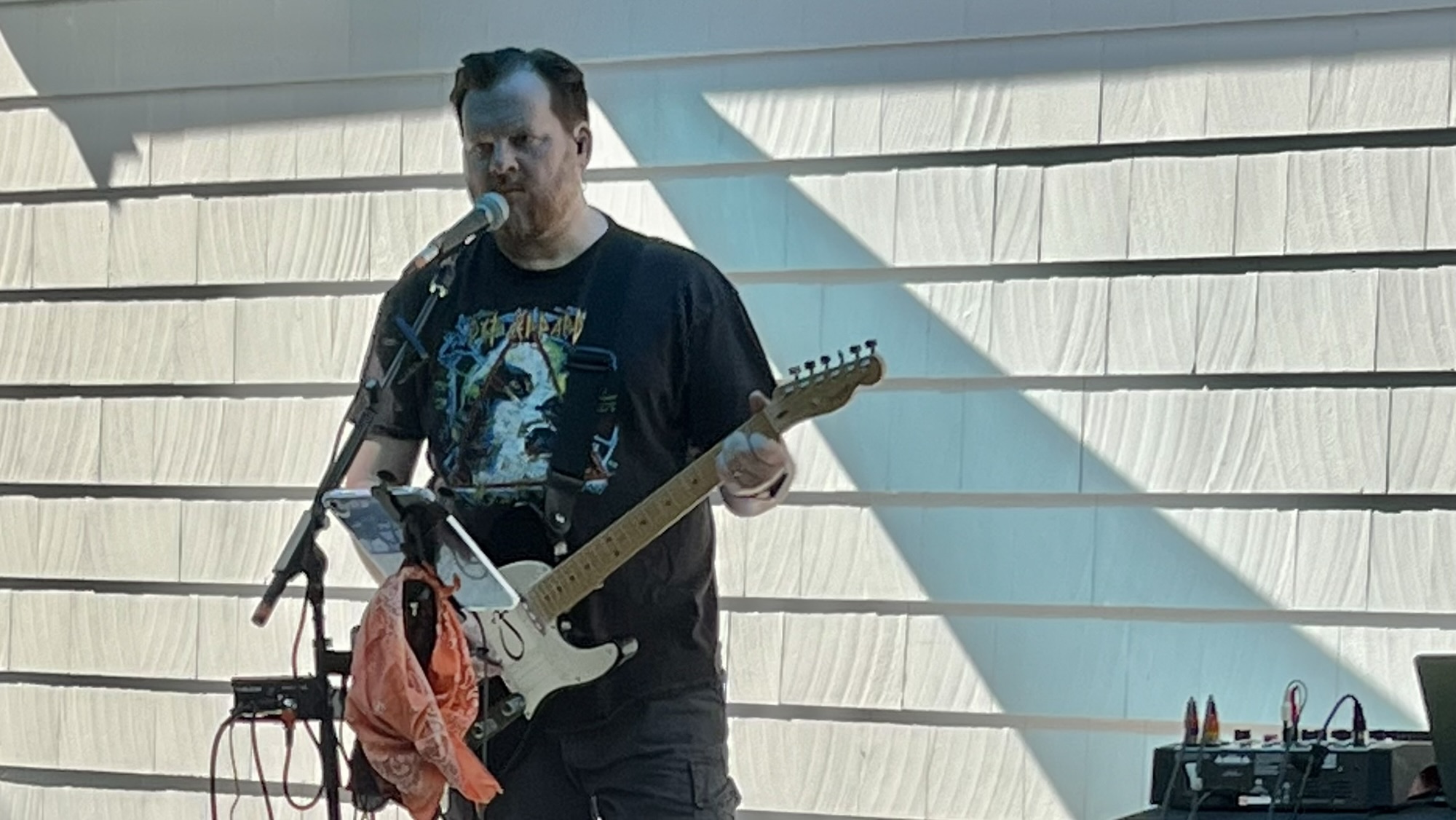I don’t go to many concerts. It’s just a scheduling thing; there are plenty of opportunities around here, but I just don’t make it a priority for whatever reason. I do like music, a lot, and I like the performative nature of live shows—the theatricality, the call and response with the audience, the improvisation and adaptation that makes every show unique, even if the set list doesn’t change.
So when I have a chance to see a band live, I get as much out of the experience as I can. A big part of that is a mix of appreciation and inspiration from people who are working hard at their craft. Seeing a show is a good reminder that the secret sauce is hard work, because the musicians up there on stage? They are working. Hard.
I’m between bands right now. Or I should say, I’m not doing any active performing or recording: we never broke up, we’re just on a break. But when the stars align, I sing, I play guitar or bass guitar, I jump around on (and sometimes off) stage. I’ve performed in front of I guess a few hundred people at a handful of street fairs, town festivals, that sort of thing. Mostly covers, although I’ve written a couple albums worth of original stuff over the years. Some of it isn’t terrible.
Here’s an important observation: the more you do a thing, the more you realize how hard it is to do that thing well. Golf is a good example: I can think of times years ago where I watched somebody sink a 30-foot putt or whatever and thought “that’s not so hard.” Then you go out and actually play the game. You just try to drive the ball towards the hole and you realize that every single swing counts; it doesn’t matter if you hit one ball out of ten straight and far at the driving range, you have to do that every single time. You use different clubs and realize you need to know about how far you can hit each one, consistently; at a minimum you need to estimate distance, then there’s wind, slope of the ground, condition of the grass. And then you eventually get on the green, and now it’s like mini golf but there’s no windmill or wooden bumpers to give you a shortcut, and it takes you four putts—one too soft, one too hard, another one too hard but not quite as bad, and finally you get it right—and then you miss by two inches and you’re picking up your ball because you stopped counting strokes before you even got off the fairway.
And you turn on golf on a Saturday afternoon and you realize, these guys are amazing. Because it is that hard to be that good.
I’ve made the mistake of not practicing not before a show, thinking “I’ve done this before; it’s not a big deal.” In contrast, I’ve played shows where I was listening to the songs in our set on repeat in the car to and from work every day to memorize lyrics, practicing the entire set over and over to memorize chords, jotting down notes about what I wanted to say to the audience, working out transitions from song to song. When I put in the effort, we were pretty good, and it was also pretty fun. When I didn’t? Not so much.
There’s also a physical aspect. When our band played, I’d usually bring a few extra black t-shirts, because singing takes a surprising amount of effort. Add in playing an instrument, and I’d be drenched with sweat within a couple songs. And I wasn’t exactly sprinting around stage, jumping on monitors or doing that cool thing where two guitarists lean back-to-back against each other. I was mostly standing there, swaying like a 5th grader at a middle school dance.
You ever go to a concert and there’s a B-stage, with some local band, and there are a few people standing around, half paying attention? Or you see the opening act and most of the seats are empty, people are having conversations, nobody’s really clapping or dancing and although they may be enjoying the music, the most feedback you’re gonna see is maybe someone nodding their head to the beat. That’s usually what you see from the stage: not a mosh pit of crazed fans, but a handful of indifferent observers walking by, maybe pausing for a moment to listen. Maybe giving a little nod.
I personally don’t believe that anybody is really an overnight success, that somebody just picks up a guitar for the first time and walks to the mic and belts out a hit. You just don’t hear about the years of hard work leading up to it.
And it does seem to take years. I’ve had a chance to observe a couple of people from my distant past who have “made it” in their respective crafts. I also have some idea of how hard they’ve worked, or at least, how long they’ve worked.
So for me, watching a performance triggers a lot of different emotions…if I’m being honest, not all are necessarily pleasant. Inspiration, energy, drive, elation, yes. But also frustration, despair, disappointment (in myself), regret, and even jealousy. Looking back at the choices that I’ve made, thinking “that could be me if I’d only started twenty years ago, if I’d only been focused, passionate, hard working, devoted to my craft.”
And then I have to stop myself and say, “no, I was focused and passionate and hard working, and devoted to a craft, but not the kind where you stand on a stage or have your name on a book or in the credits or in the corner of a painting.” I did different things, and I “made it” in a different way.
But those feelings of looking up at that stage have led me, on various occasions, to start that band that I was part of, to write songs, to visualize, to create, and even to bring the name “January River” back from where it began, on a cassette tape in a box of old things. To try different things. To work hard again.
I don’t know if there’s still a chance for me to make it in a different way. If it doesn’t happen, that’s ok. I’ve already had enough success for one lifetime, and I won’t feel shortchanged.
But I’m still trying, and I’m putting in the work. I’ve brought extra shirts.



